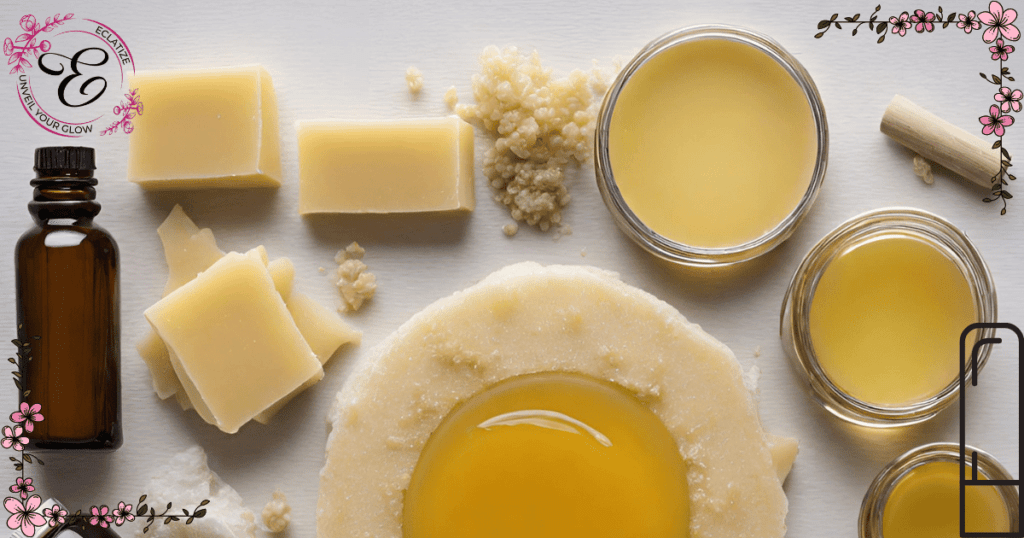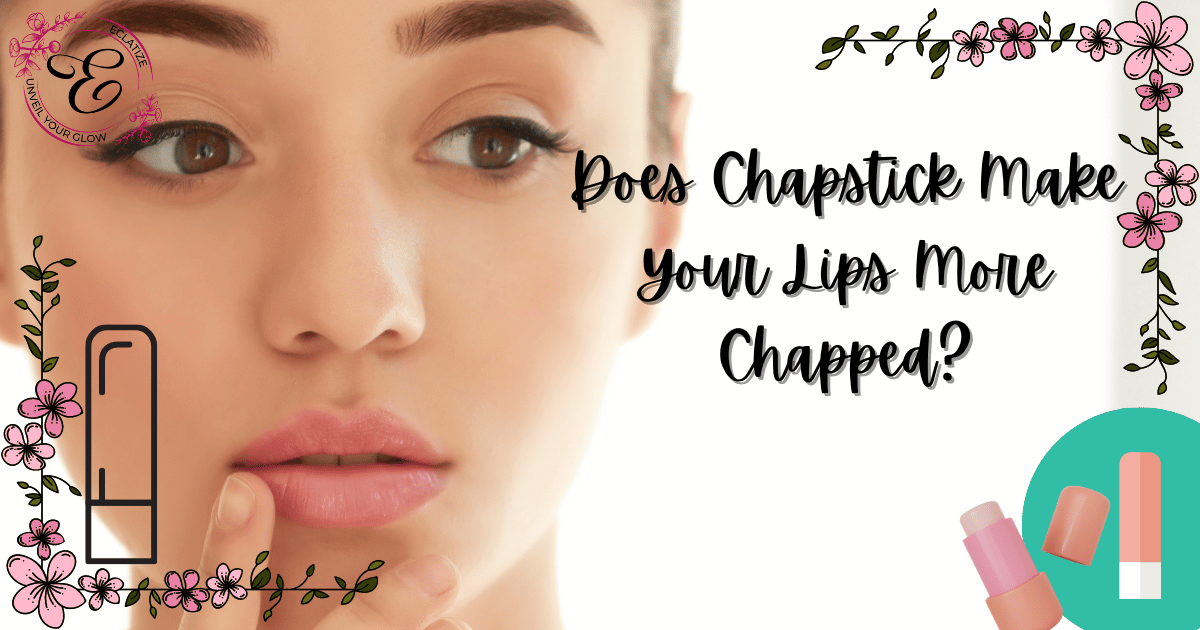Lip care has become a fundamental routine for many individuals, especially during harsh weather or in dry environments. One of the most commonly used products for lip care is Chapstick or lip balm. However, there’s a prevalent concern among users: does Chapstick make your lips more chapped?
Lip balm, like Chapstick, is often used to alleviate dryness, cracking, and discomfort associated with chapped lips. It’s designed to provide a protective barrier and retain moisture. Yet, misconceptions persist, suggesting that using Chapstick might exacerbate the problem it aims to solve.
Table of Contents
The Science Behind Lip Moisturization
Before delving into the effects of Chapstick, it’s crucial to understand the dynamics of lip moisture. Lips possess a thin layer of skin and lack sweat glands, making them prone to dehydration. Factors such as weather conditions, exposure to sun or wind, and habitual licking of lips contribute to dryness.
Ingredients in Chapstick

Examining the ingredients in Chapstick sheds light on its impact on lip health. Common components like beeswax, petrolatum, and various oils form the base of most lip balms. While these ingredients offer temporary relief, prolonged usage might have counterproductive effects on natural lip moisture.
Chapstick and Lip Sensation
Users often experience immediate relief upon applying Chapstick. However, there’s a growing concern regarding its long-term impact. Continuous use might lead to a sensation of increased dryness, prompting the need for more frequent application.
Myth Debunking: Does Chapstick Make Lips More Chapped?
The concern often circulates whether using Chapstick contributes to making lips more chapped. Lip balms like Chapstick are commonly used to soothe dryness and cracking of the lips. However, there’s a prevailing misconception suggesting that these balms might worsen the very issue they aim to solve.
Chapstick and similar lip balms are formulated to provide a protective layer and retain moisture on the lips. Despite this intent, there’s a misconception that continuous use of Chapstick could potentially make lips drier and more prone to chapping.
Contrary to this belief, Chapstick itself doesn’t directly cause lips to become more chapped. The real concern lies in the dependency created by continuous application. Overuse of Chapstick can result in a reliance on the balm for moisture, reducing the lips’ natural ability to hydrate themselves. This dependency can inadvertently exacerbate dryness, creating a cycle where more frequent application is perceived as necessary.
It’s essential to recognize that Chapstick isn’t inherently the cause of chapped lips but rather the reliance on it. Sensible usage, understanding one’s lip condition, and incorporating healthy lip care habits can prevent the lips from becoming excessively dry or reliant on external moisturization.
Choosing the right lip balm, considering natural alternatives, and maintaining a balance between usage and allowing natural hydration can help break the cycle of potential dependency on Chapstick without exacerbating chapped lips.
The key takeaway: Chapstick doesn’t directly cause lips to become more chapped; however, over-reliance on it might disrupt the lips’ natural moisture balance.
How to Choose the Right Lip Balm
Selecting an appropriate lip balm involves considering various factors such as ingredients, SPF protection, and personal preference. Exploring alternatives to Chapstick, like natural or organic lip balms, might offer a healthier choice for lip care.
Preventing Chapped Lips Without Chapstick
For individuals seeking alternatives or aiming to reduce dependency on lip balm, adopting healthy habits is crucial. Hydrating sufficiently, avoiding excessive lip licking, and using natural remedies like coconut oil or honey can aid in preventing chapped lips.
Understanding Lip Health
Ultimately, maintaining lip health extends beyond using lip balm. Hydration, diet, and lifestyle play pivotal roles. Adequate water intake and a balanced diet rich in vitamins contribute significantly to overall lip condition.
Conclusion
In conclusion, Chapstick doesn’t inherently make lips more chapped. However, its continuous and excessive use can lead to a dependency that disrupts the lips’ natural moisture balance. Choosing the right lip balm and adopting healthy habits are key to maintaining optimal lip health.
FAQs
Does Chapstick contain harmful ingredients?
Chapstick typically contains ingredients like beeswax, petrolatum, and various oils. While these ingredients are generally safe, some individuals might be sensitive or allergic to specific components. It’s advisable to check the label and consult a dermatologist if concerned about potential allergic reactions.
Can using Chapstick lead to addiction?
Continuous and excessive use of Chapstick can create a psychological dependency rather than a physical addiction. When applied excessively, the lips might feel drier without the balm, prompting the individual to apply it more frequently. Breaking this cycle might require gradually reducing usage.
What are natural remedies for chapped lips?
Natural remedies like coconut oil, shea butter, honey, or aloe vera gel can be effective alternatives to Chapstick. These natural moisturizers offer hydration without the risk of dependency and can help alleviate dryness.
How often should one apply Chapstick for effective lip care?
The frequency of Chapstick application varies based on individual needs and environmental conditions. Applying it when necessary to relieve dryness is suitable, but excessive use may lead to dependency. Balancing application to prevent excessive reliance is crucial.
Are there any long-term effects of using Chapstick regularly?
Prolonged and excessive use of Chapstick might reduce the lips’ natural ability to moisturize themselves. This could potentially lead to a perceived increase in dryness when not using the balm. Moderation and considering alternative lip care methods can mitigate this issue.
Does frequent lip licking contribute to chapped lips?
Yes, habitual lip licking can contribute to chapped lips. Saliva dissipates rapidly upon contact with the lips, leading to a swift evaporation process that leaves the lips in a drier state than their initial condition. It’s essential to avoid this habit and opt for hydrating lip balms or natural remedies instead.
Can dietary habits affect lip health?
Absolutely. A balanced diet rich in vitamins and hydration can positively impact lip health. Consuming sufficient water, fruits, and vegetables contributes to overall hydration and skin health, including that of the lips.

